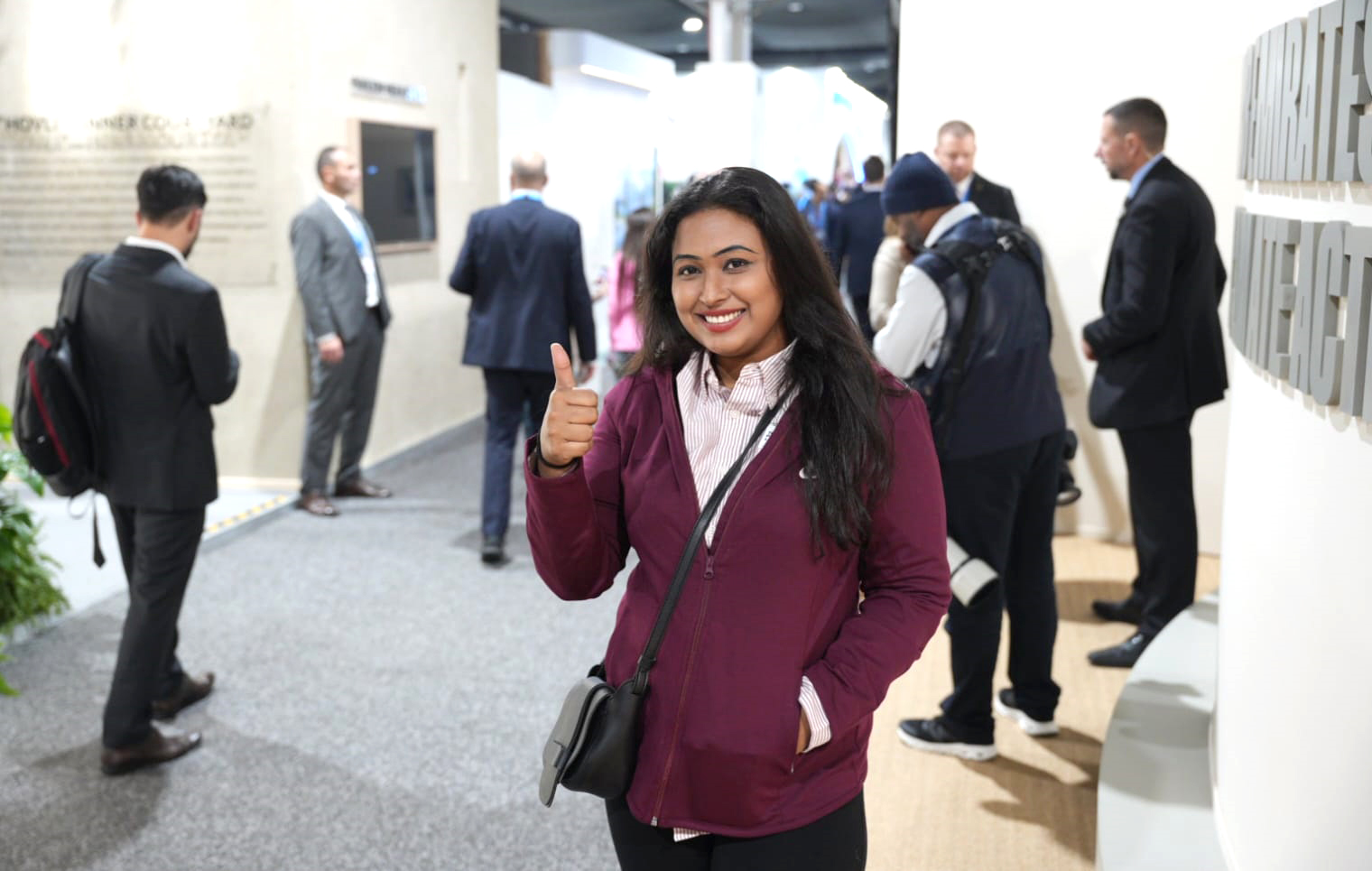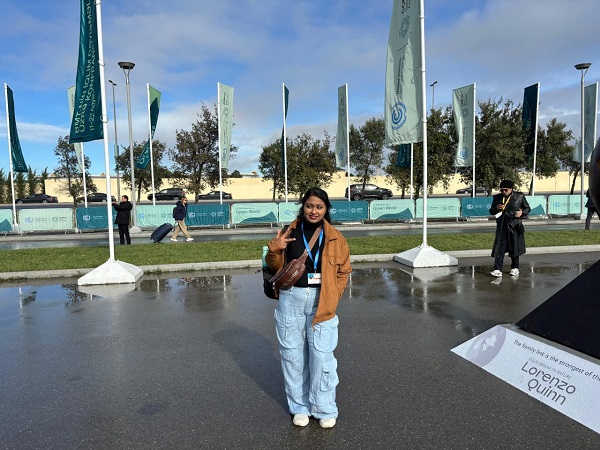 COP29 is an international conference on climate change and global warming. This year, COP29 was held in Baku, Azerbaijan. We talked about our experience at the conference with Anika, a volunteer organizer who works with disadvantaged children. She is working as a volunteer on issues to be addressed in response to climate change. For that reason, Anika Tabassum participated in this year’s COP conference from an organization called Work for Better Society. Hasanur Rahman Tanzir has an exclusive interview with her about her experience and observations at COP29.
COP29 is an international conference on climate change and global warming. This year, COP29 was held in Baku, Azerbaijan. We talked about our experience at the conference with Anika, a volunteer organizer who works with disadvantaged children. She is working as a volunteer on issues to be addressed in response to climate change. For that reason, Anika Tabassum participated in this year’s COP conference from an organization called Work for Better Society. Hasanur Rahman Tanzir has an exclusive interview with her about her experience and observations at COP29.
What did you observe at COP?
At COP 29, I observed how developed nations are addressing the impacts of climate change and the steps they are taking for mitigation. The discussions highlighted various issues faced by different countries. For instance, in Africa, people suffer from extreme heat, while in Bangladesh, floods devastate riverbank communities, leaving people homeless.
I also learned how developed nations use sustainable technology and advanced strategies to protect themselves from climate change impacts. Additionally, through various seminars, I met technical experts who are conducting research and providing solutions to these pressing problems.
As a representative from Bangladesh, I focused on gaining insights into solutions for the challenges our country faces, particularly the recurring floods in our riverine areas. I emphasized the importance of early preparation and effective strategies to combat such issues.
Another key observation was the offer of loan assistance from the United Nations to Bangladesh. However, we have made it clear that we are not seeking loans but grants, as we are victims of climate change and need support to recover, not debt that could further burden us.

Climate change and its impact on women and their role in addressing it:
This year’s conference placed significant importance on how climate change disproportionately affects women’s lives. Women and children are often the most vulnerable to the adverse effects of climate change due to financial hardship and systemic inequalities.
Several seminars highlighted women’s leadership in climate action. I saw firsthand how women are making strides not only in advocacy but also in technological innovations to combat climate change. There was a strong emphasis on amplifying women’s voices and initiatives, especially in decision-making processes at all levels of climate action.
Women are playing critical roles in global and local policymaking and in providing solutions to climate issues. It was inspiring to see many women leading international organizations and even holding influential government positions. This reinforces the need for increased participation and leadership of women in climate-related initiatives in our country as well.

Topics discussed at COP 29:
The conference covered several important topics, including:
Women’s leadership in climate action.
Solidarity for a greener world.
National and international commitments to energy efficiency.
Climate finance and its implementation.
Economic transitions for high-emission sectors.
Development of hydrogen technology by 2023.
Empowering youth in energy transition.
Climate action, recovery, and peace.
Achieving net-zero goals and their challenges.
Strengthening global energy efficiency initiatives.
What topics received the most attention?
The primary focus this year was on climate finance and net-zero goals. Climate finance refers to financial resources allocated for mitigating and adapting to climate change. These resources may come from grants, loans, or domestic budgets and can be managed by multilateral development banks or other international agencies. The aim is to facilitate the transfer of public funds from developed to developing nations.
Net-zero goals focus on achieving carbon neutrality by 2050. This involves setting new emission reduction targets, promoting international carbon market growth, and accelerating the development of clean energy technologies.
How do you feel about your experience?
Participating in COP 29 allowed me to identify key challenges faced by various countries and gain valuable insights that will help in future research and policymaking.
I had the opportunity to connect with several experts, whom I can invite to collaborate on addressing Bangladesh’s climate issues. It is crucial for us to ensure that climate change does not hinder our nation’s progress. We need to adopt advanced technologies and community-based solutions to address these challenges effectively.



